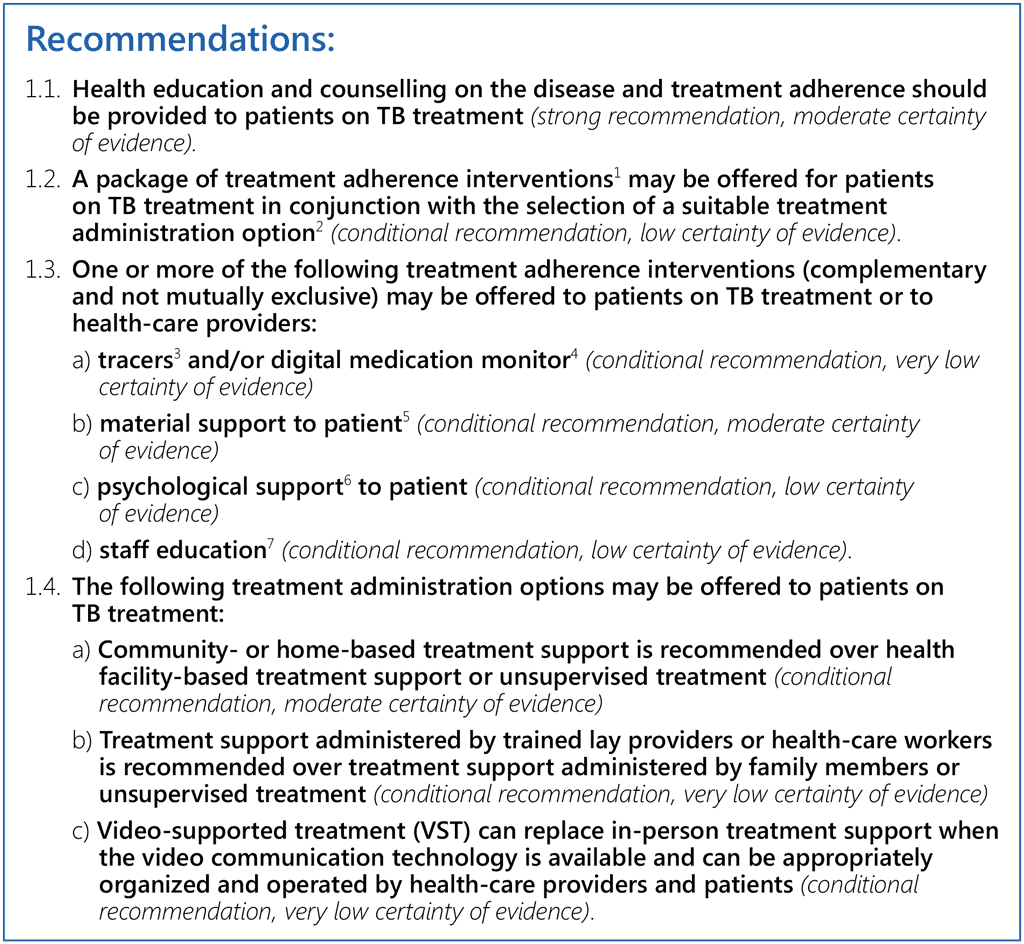Book traversal links for 3. Care and support interventions to enable TB treatment adherence
Ensuring adherence to TB therapy is one of the important challenges for achieving a successful treatment outcome, particularly for patients with drug-resistant TB (DR-TB). This is because of the large number of medications, the frequent and serious adverse drug reactions, and the social and financial costs to patients related to TB treatment. Because DR-TB and extensively drug-resistant TB (XDR-TB) treatment are often the last chance for treatment for many patients, and because there are serious public health consequences if treatment fails, it is important that all patients are supported using a person-centred approach to ensure full adherence to treatment (7).
Good adherence to TB treatment (taking all the medications at the correct time) is essential to prevent the development of resistance and increase the chances of cure. Taking all the medications for TB therapy is difficult, particularly for DR-TB, because treatment regimens can sometimes be long, the daily pill burden is high, there are frequent and serious adverse drug reactions, and access to care can cause social and economic costs to patients. A person-centred approach is needed to maximize treatment adherence and enable early intervention with patients who are not responding to treatment, who are not able to take their medications or who are having adverse effects from treatment. Optimal person-centred care consists of multiple interventions, including social support (informational/ educational, psychological and emotional, and material support), treatment administration options and digital adherence technologies. Staff education and support that allow health-care workers to provide health education and counselling on TB disease and treatment adherence are strongly recommended. It is also recommended that all patients receive medicines under an appropriate treatment administration option and that they benefit from social support interventions that ensure full adherence to treatment, with a person-centred approach based on sound ethics and with respect for human rights.
National TB programmes (NTPs) need to improve patient access to quality treatment adherence interventions and optimal treatment administration options. Although all people with TB should receive appropriate care and support interventions, particular attention should be paid to patients being treated for DR-TB because DR-TB treatment is often the last therapeutic option for many patients and there are serious public health costs if treatment fails.
The following recommendations from the WHO guidelines on TB care and support (15, 16) continue to apply to patients with drug-susceptible (DS) and drug-resistant (DR) TB.

 Feedback
Feedback